Crucial T705 2TB Performance Testing
We test using both the default smaller test size as well as larger test sets on our benchmarks. This allows us to see the difference between lighter and heavier workloads.
CrystalDiskMark x64
CrystalDiskMark is used as a basic starting point for benchmarks as it is commonly run by end-users as a sanity check.
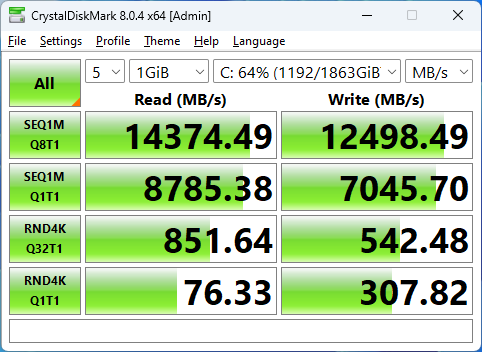
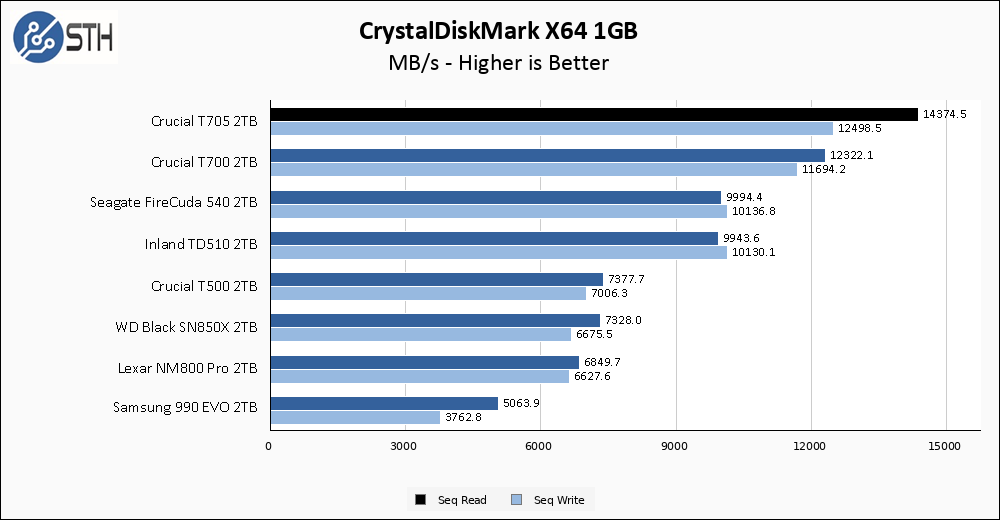
The T705 promised 14500 MB/s read and 12700 MB/s write, and it gets darn close to both of those numbers. The results here top my chart, turning in the best sequential read and write performance that I have yet seen. Of course, this is essentially to be expected, as the T705 has the highest-rated specs of any drive I have seen. There is a clear gap between the T700 and the T705, which is what you would want to see with a new drive like this.
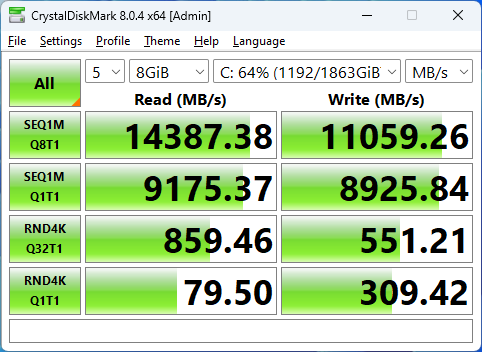
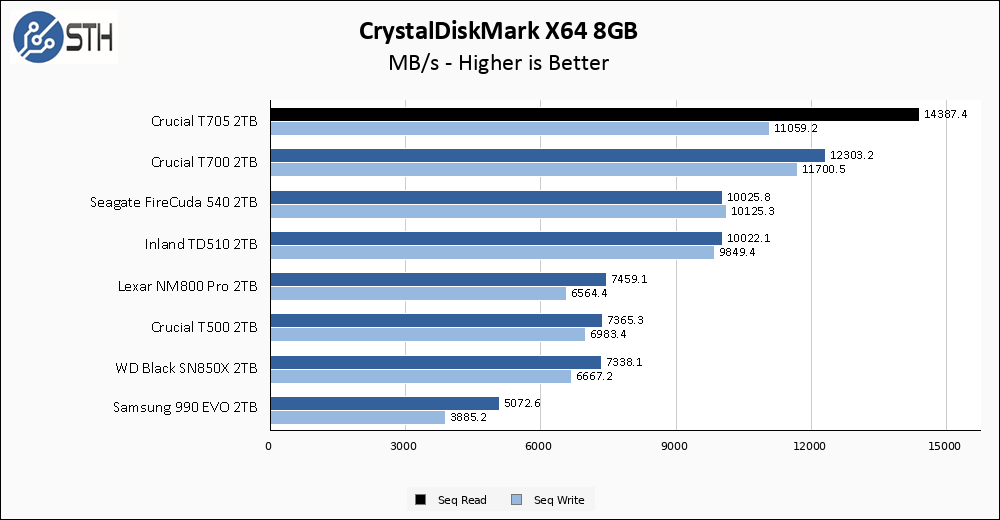
The Crucial T705 holds its read performance steady, though sequential write speed takes a small dip on the larger CrystalDiskMark test. Performance here is still good overall, of course. You should get used to seeing the T705 bar at the top of our charts. It is going to be a recurring theme in this review.
ATTO Disk Benchmark
The ATTO Disk Benchmark has been a staple of drive sequential performance testing for years. ATTO was tested at both 256MB and 8GB file sizes.
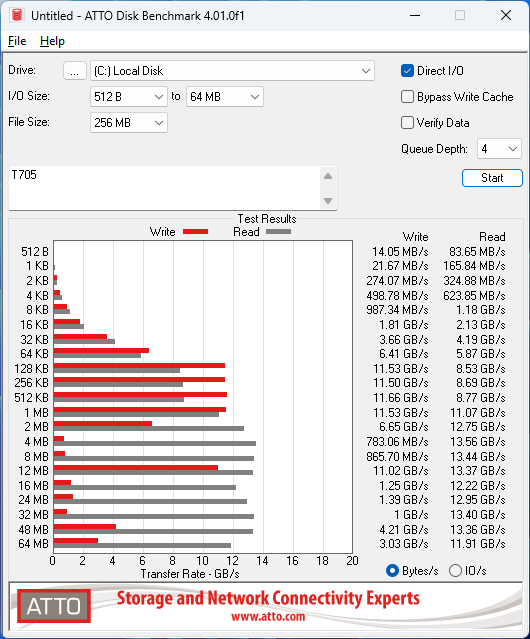
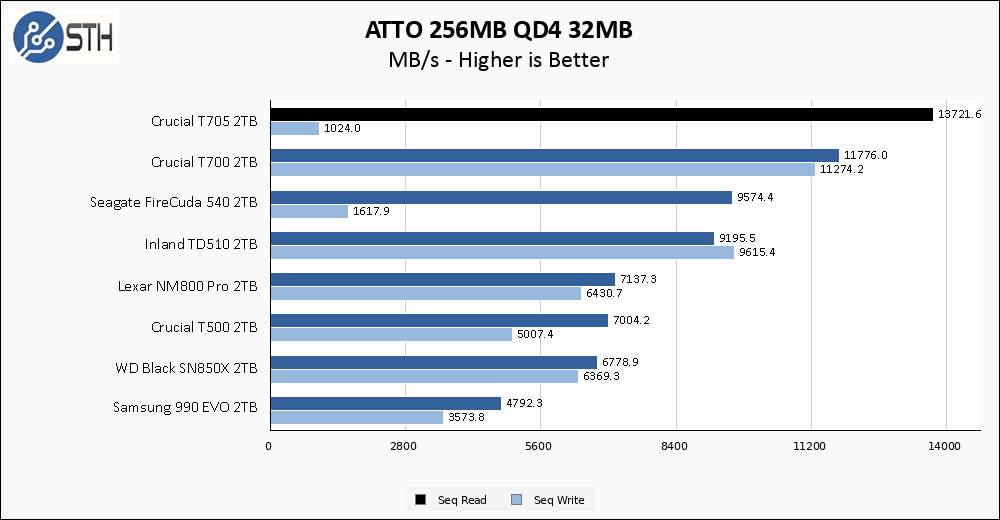
ATTO is a bit of a roller coaster on the T705. On the one hand, we have the highest sequential read results I have ever seen. On the other hand, write results are all over the place. This is behavior I have seen before, though, on Phison E26-powered drives in particular. Running this benchmark with the drive at 0% capacity used would result in a significant improvement in ATTO write speeds, but that is not how I test drives. The exact numbers are not the important part here; looking at the performance instability of the T705 across the length of this benchmark is the more important result.
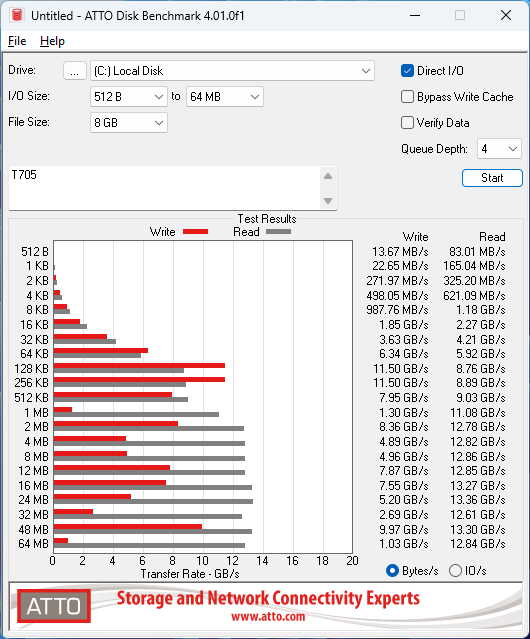
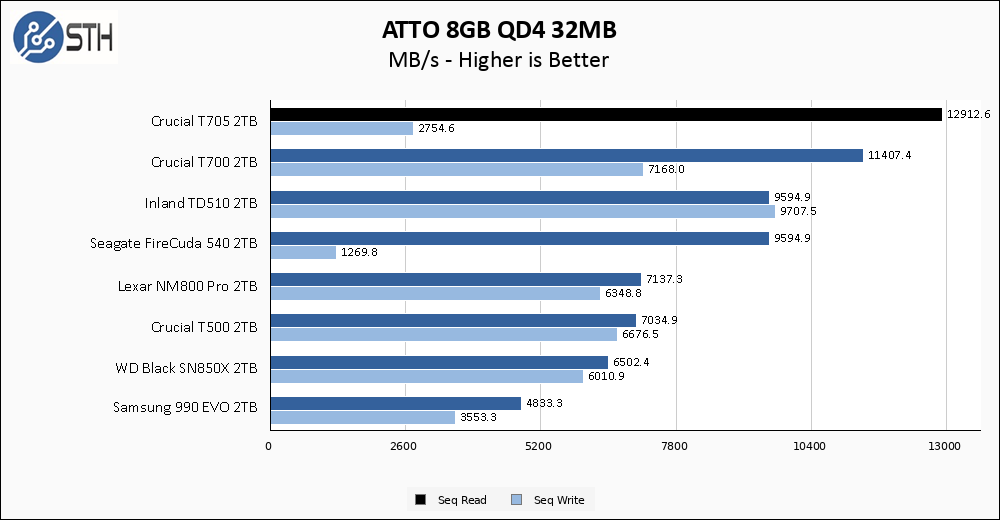
Things do not change on the larger ATTO test. The T705 continues dominating read performance, while write performance is still highly variable across the test.
Anvil’s Storage Utilities
Anvil’s Storage Utilities is a comprehensive benchmark that gives us a very in-depth look at the performance of the drives tested. This benchmark was run with both a 1GB and 8GB test size.
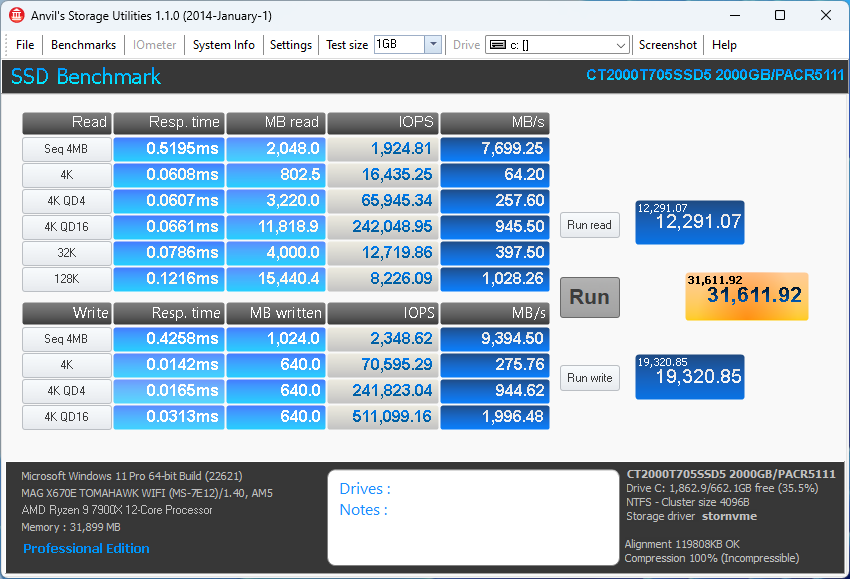
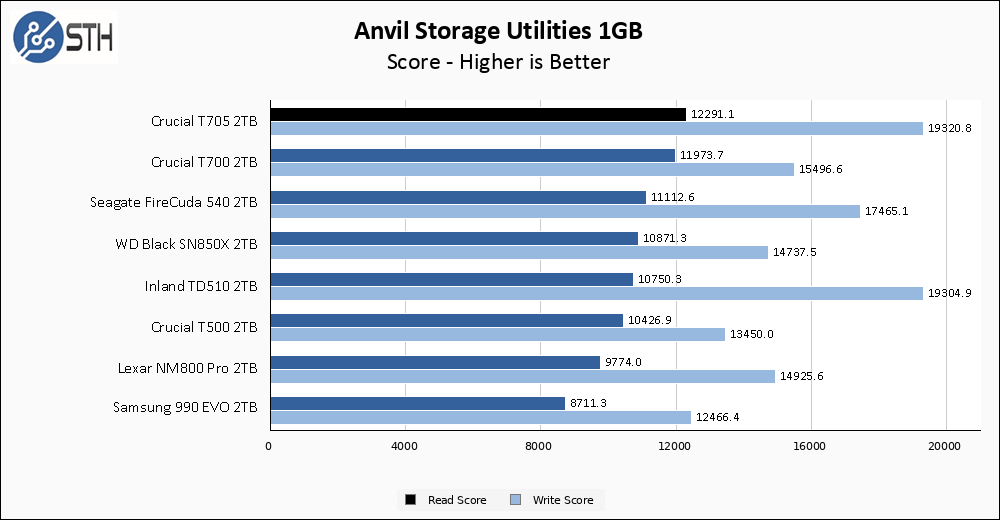
The Anvil results for the Crucial T705 are a return to top form. The read score for the T705 is the highest I have ever seen, excluding the Optane P5800X. Write score sets a record as well, narrowly edging out the TD510.
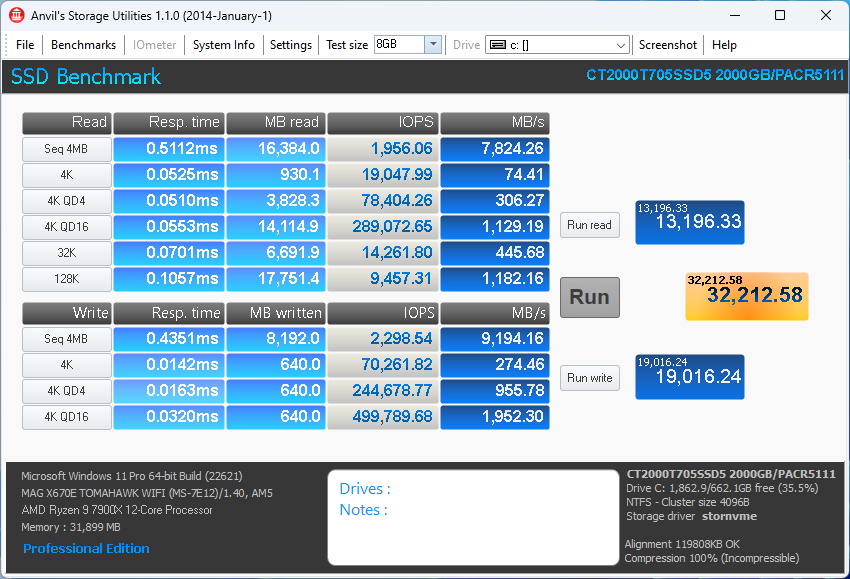
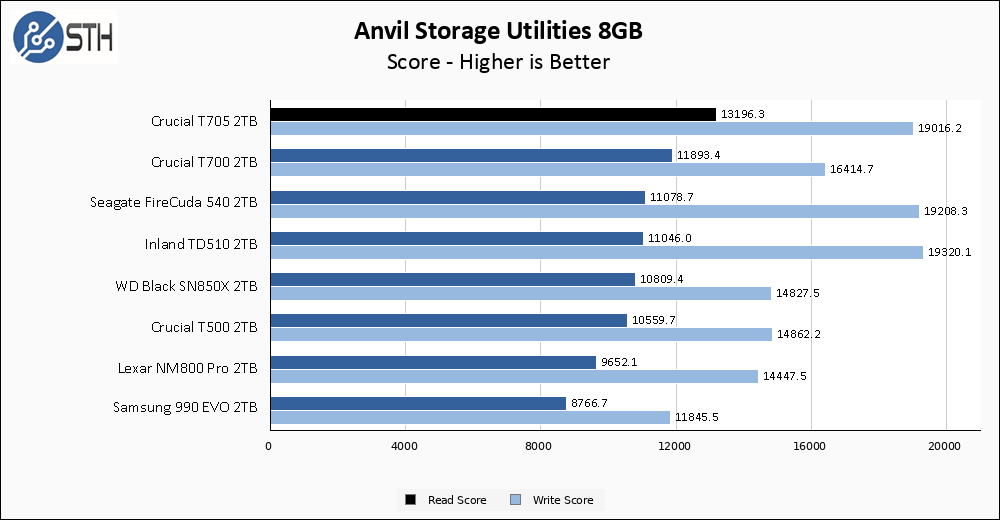
The larger Anvil test shows the T705 holds the top spot for read score I have ever seen, with the only exception being the Optane drive. On the write side, the T705 is narrowly edged out by both the TD510 and the FireCuda 540.
AS SSD Benchmark
AS SSD Benchmark is another good benchmark for testing SSDs. We run all three tests for our series. Like other utilities, it was run with both the default 1GB as well as a larger 10GB test set.
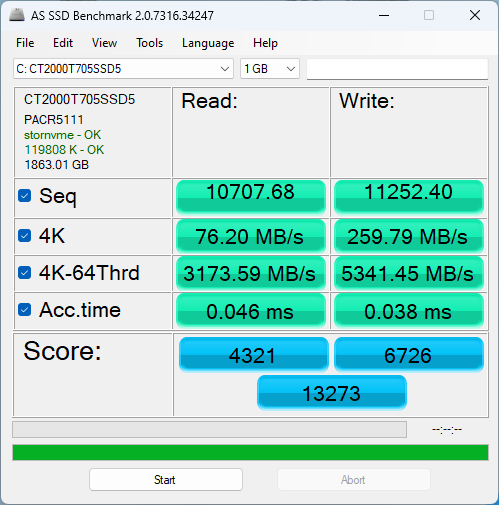
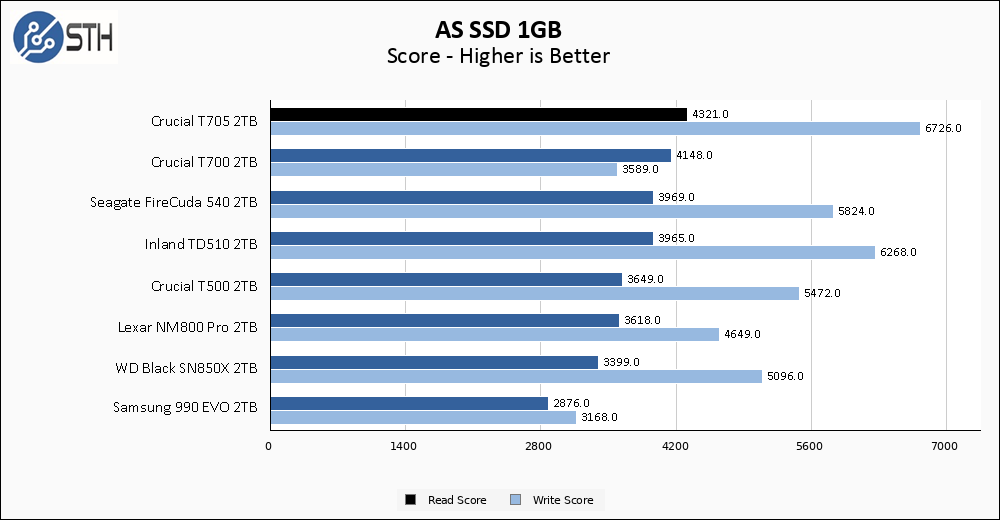
Crucial T705 performance is excellent in AS SSD, setting both a read score and write score record for traditional SSDs. The only caveat is that the margin of victory is somewhat closer in AS SSD, but that seems like a small complaint to me.
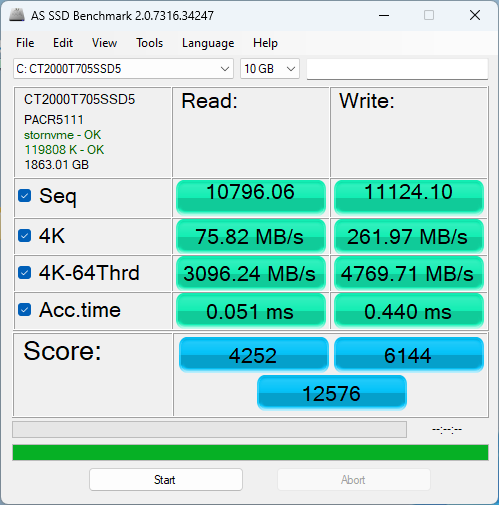
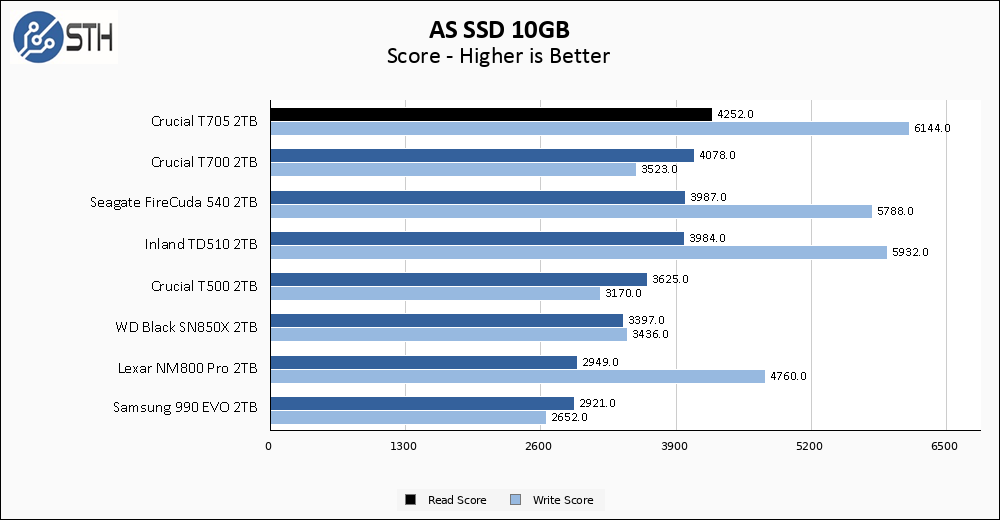
The larger AS SSD has Crucial holding strong to the top of the chart, once again setting records for my entire benchmark dataset. Overall, across my entire benchmark suite, the T705 was a strong contender at almost every point.
SPECworkstation, thermals, and our conclusion are up next.


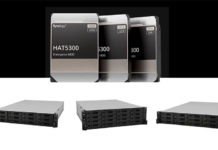
Does anyone have any specs comparing the T700/705/other Gen5 NVMe to options like Intel Optane 905P. I’d love to see some comparison for real-world groups like productivity, gaming, and server use.
It seems like a balancing act to find the best throughput and latency combo. I don’t really have a need for high speed storage in work environment, but my home workloads might.
So, here we have another benchmark optimized drive… that shows very poor 512/4K read performance…
These benchmark optimized drives generally attain these sequential speeds for only a few gigabytes before they fall off rapidly.
Looking at these numbers, this drive when written from start to finish probably does 250Mbps on average or even less…
So is this really a 10Gbps drive? No, stop using 8Gb benchmarks and write an actually dataset to the entire drive!
Sjoer van der Ploeg,
You must have missed the part where I wrote 85% of the drive from start to finish and the drive held 3 GB/s+ the entire time. That’s a fair bit better than your ‘probably does 250Mbps on average or even less’
What is the claimed active power, when interrogated using nvme utils? I’d love to know if this heatsink makes any sense.
I general it would be awesome if the SSD reviews could include a readout of all the relevant NVMe parameters like power states, LBA format, etc.
U suppose these speeds will be the norm in a few years and yeah I wwouldn’t say no to the 4TB as my X670E-I ITX board does support it. But wow those prices!